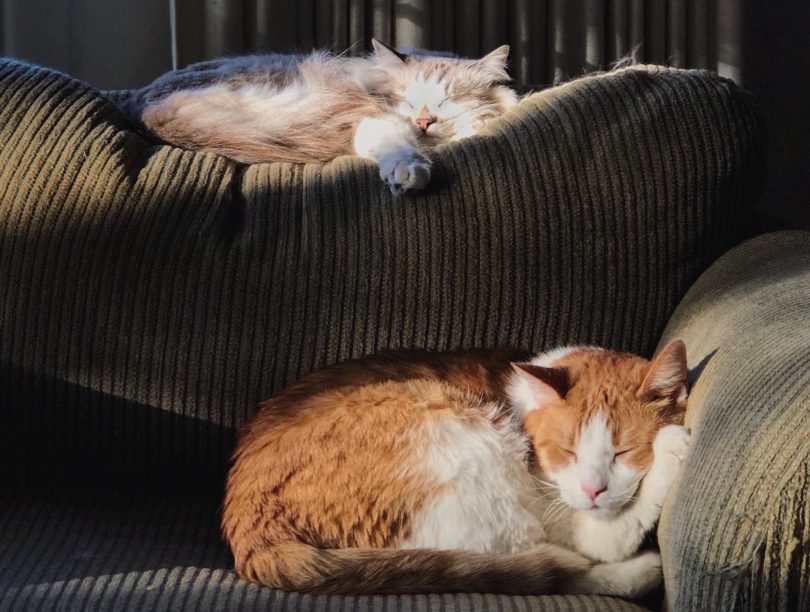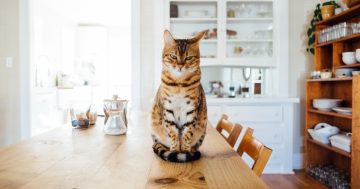
By meeting their basic needs for food, water, rest and play, cats can lead a happy life indoors. Photo: Supplied.
Cat lovers across the Eurobodalla Shire are being encouraged to keep their cats indoors for the protection of native animals and for the safety of the felines.
Eurobodalla Shire Council’s natural resources officer Courtney Fink-Downes said research shows the average outdoor cat killed 110 native birds and animals each year. Letting them roam free can be bad for the cats, too.
“We know there can be poor outcomes for the cats, with potential harm from motor vehicles, other cats, dogs and even some wildlife such as snakes,” she said.
“Even suburban cats cover some serious ground. Recent research shows that outdoor suburban cats travel around 10 house blocks each day, and 20 house blocks each night.”
Fortunately, cats don’t need a lot of space to exercise and they can happily entertain themselves when kept inside, as recommended by the RSPCA. The animal welfare organisation lists essentials such as food, water, environmental enrichment options, including for hiding, sleeping, and play, and litter trays with a variety of substrates as requirements for a happy indoor life.
Ms Fink-Downes said a scratching post and a comfy spot where the sun shines in completes the picture.
“There are also ways to keep cats – and wildlife – safe while providing some outside activity,” she said. “For example, there are some terrific commercially available cat enclosures, or simply netting-in the deck or veranda. Of course, some cat owners go crazy with their enclosures, with runs encircling their house, and steps and slides and plenty of sleeping spots.
“Another solution is Catbibs, available free from council for owners of registered and microchipped cats in the Eurobodalla Shire. These neoprene aprons are fitted to a cat’s collar and do not interfere with its daily doings except to prevent hunting by breaking up the animal’s footfall.”
Council’s coordinator of environmental compliance, Nathan Ladmore, reminded owners that cats must be registered and microchipped under the law.
“It’s really about keeping cats safe, and helps us to reunite lost animals with owners quickly and reduce the number of feral cats,” he said.
Ms Fink-Downes said it is quite possible to transition cats who have lived their whole life outdoors to happily accept indoor living, referring to the RSPCA’s informative Safe and Happy cats website.








